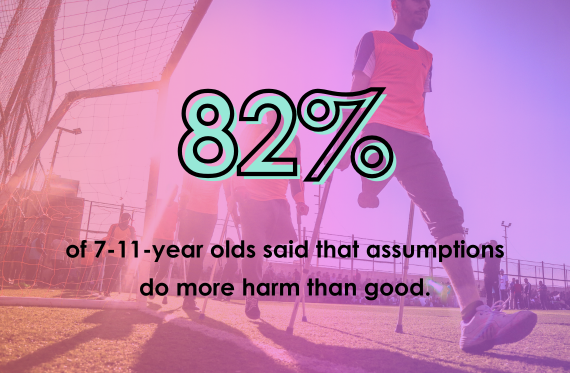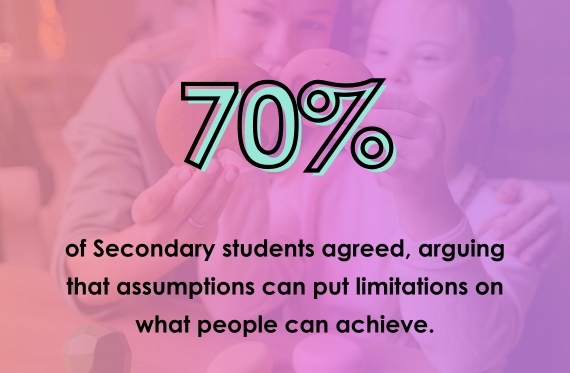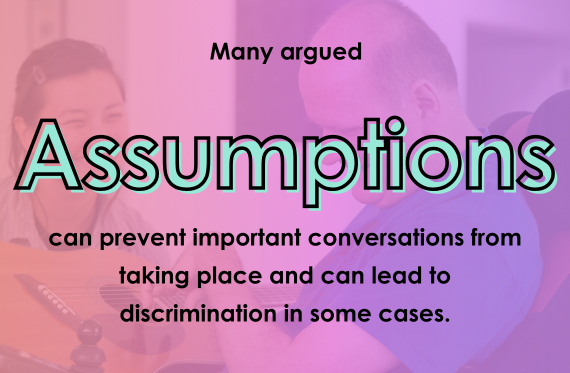Total votes
5-11 votes
11-16+ votes
To celebrate International Day of People with Disabilities on 3rd December, voters reflected on the assumptions that are often made about people with disabilities, and the potential issues these can cause. They also discussed the Government’s now inactive “Ask, Don’t Assume” campaign and its subsequent backlash, and heard testimonies from those with disabilities who have had assumptions made about them by others.
Primary 7-11, Secondary, 16+ & College voters were asked: “Do assumptions do more harm than good?”, while Primary 5-7 voters considered: “Should we be more careful about assumptions?”
54,505 young people in the UK have taken part in this vote.

I think assumptions can be quite harmful at times because they can offend others. This is because you are setting a limit on someone's abilities without knowing.

Assumptions aren't always helpful and can be limiting. Things like badges and the sunflower lanyards have been useful in reducing assumptions and subtly highlighting hidden disabilities.

Students felt that assumptions were good for self preservation and that they can change their assumptions when they learn more information.
Thank you to National Deaf Children's Society, Scope and Disability Rights UK for responding to voters on this topic!
"The recent debate on whether assumptions do more harm than good, engaging over 54,000 young people across the UK, is both timely and significant. In recognition of International Day of Disabled People, students delved into the impact of assumptions on individuals with disabilities, discussing the government's 'Ask, Don't Assume' campaign and hearing firsthand accounts from those affected.
The overwhelming consensus—82% of voters believing that assumptions cause more harm than good—highlights a critical awareness among youth. Many students noted that assumptions can lead to limiting beliefs about a person's capabilities, particularly concerning Disabled people. They emphasised the importance of not presuming someone's abilities or needs, especially since many disabilities are not immediately visible.
At Disability Rights UK, we are heartened by the thoughtful engagement these young individuals demonstrate. Their recognition that assumptions can perpetuate stereotypes and create barriers aligns with our mission to promote equality and inclusion. By fostering a culture of inquiry, curiosity and empathy and encouraging people to ask rather than assume, we can dismantle prejudices and build a more inclusive society.
We commend VotesforSchools for facilitating this meaningful conversation and are inspired by the student's commitment to challenging assumptions. Their voices are instrumental in driving societal change, and we look forward to seeing the positive impact they will undoubtedly have in promoting understanding and respect for all individuals, regardless of ability.”
Disability Rights UK


